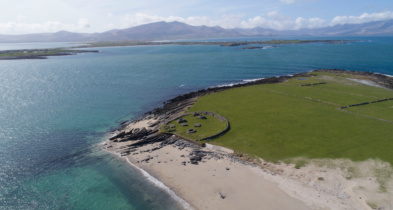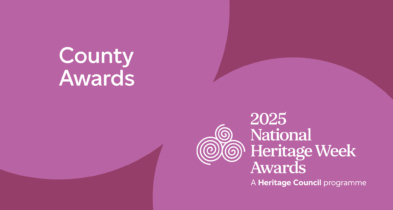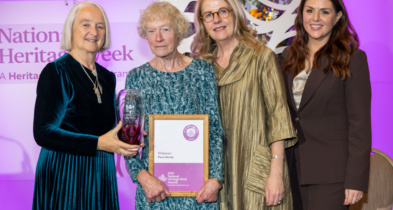
National Heritage Week 2025 Theme: Exploring Our Foundations

National Heritage Week will take place from 16th - 24th August 2025. The Heritage Council invites all to get involved under the theme of "Exploring our Foundations"
From 16th - 24th August 2025 we invite you to join us for National Heritage Week. The theme of “Exploring Our Foundations” invites us to delve into the building blocks of our heritage; uncovering not just the structures that surround us but also the cultural and natural elements that have impacted us and our communities
National Heritage Week 2025 encourages us to rediscover these building blocks and see their lasting impact. From traditional skills and crafts to how settlements and towns have evolved, to the natural world and its imprint on us, this theme highlights the connections that ground us while inspiring new ways to celebrate and sustain our heritage.
By exploring our foundations, we strengthen them, ensuring what defines us today shapes tomorrow.
How can we "Explore Our Foundations"
Through events, workshops, talks and demonstrations you can dive into our foundations.
In built heritage, there are many ways to explore it. Through events that can look at Religious architecture, focusing on churches, cathedrals, monasteries, abbeys etc.
Commercial architecture, focusing on shops, department stores, offices, merchant houses etc, Industrial architecture, present and former sites of production, old factories, mills, railway stations, warehouses, chimneys etc, domestic architecture, including private homes and local vernacular buildings and Commemorative monuments and statues. National Heritage Week provide opportunities for communities to showcase the buildings they value and have valued in the past, whether they are grand designs or simple functional structures.
We should also recognise the knowledge, skills, and craftsmanship that went into creating our buildings. Many skilled workers contributed to the building process. These difference skills that weave our buildings together can be examined; traditional stone masonry, lime plastering, thatching, blacksmithing and other skills. These craftsmen and women often remain anonymous and easily forgotten. The techniques used in building and decorating have largely stayed the same over time, even with some mechanical improvements. Although these traditional skills are in short supply, they are essential for the conservation of our built heritage.
Cultural Traditions
When we think about foundations, we often think about buildings but there is so much more. Our society is built on our culture and the intangible cultural heritage of pasttimes, skills, traditions are all part of our foundations. In today's world it is important to stop and reflect on the traditional skills, pastimes that are becoming rare. To preserve our cultural heritage, it’s important that these traditions continue to be passed down through generations. National Heritage Week provides an opportunity to look beyond what is in front of us but where it came from. By uncovering these stories and showcasing traditional craftspeople at work, we can inspire younger generations to take up these important pasttimes and skills.
Natural World
Our natural world gives us plenty of opportunity to explore our foundations.
There is opportunity to examine the structures in nature; so many animals have their own kinds of architecture and structure. What can we learn from how they build their homes? Many of our flora and fauna are under threat as a consequence of changing climate, pollutants, and the destruction of natural habitats. What are the habitats and climates that are the foundation of thriving ecosystems. How can we explore them?
We share our buildings with plants and animals of all kinds. We invite you to become nature detectives, giving them an opportunity to learn about the other life we share our homes with. Create a nature trail in your town so that they can tick a box as they find them.
We look forward to welcoming you to take part in National Heritage Week 2025 and explore our foundations.

